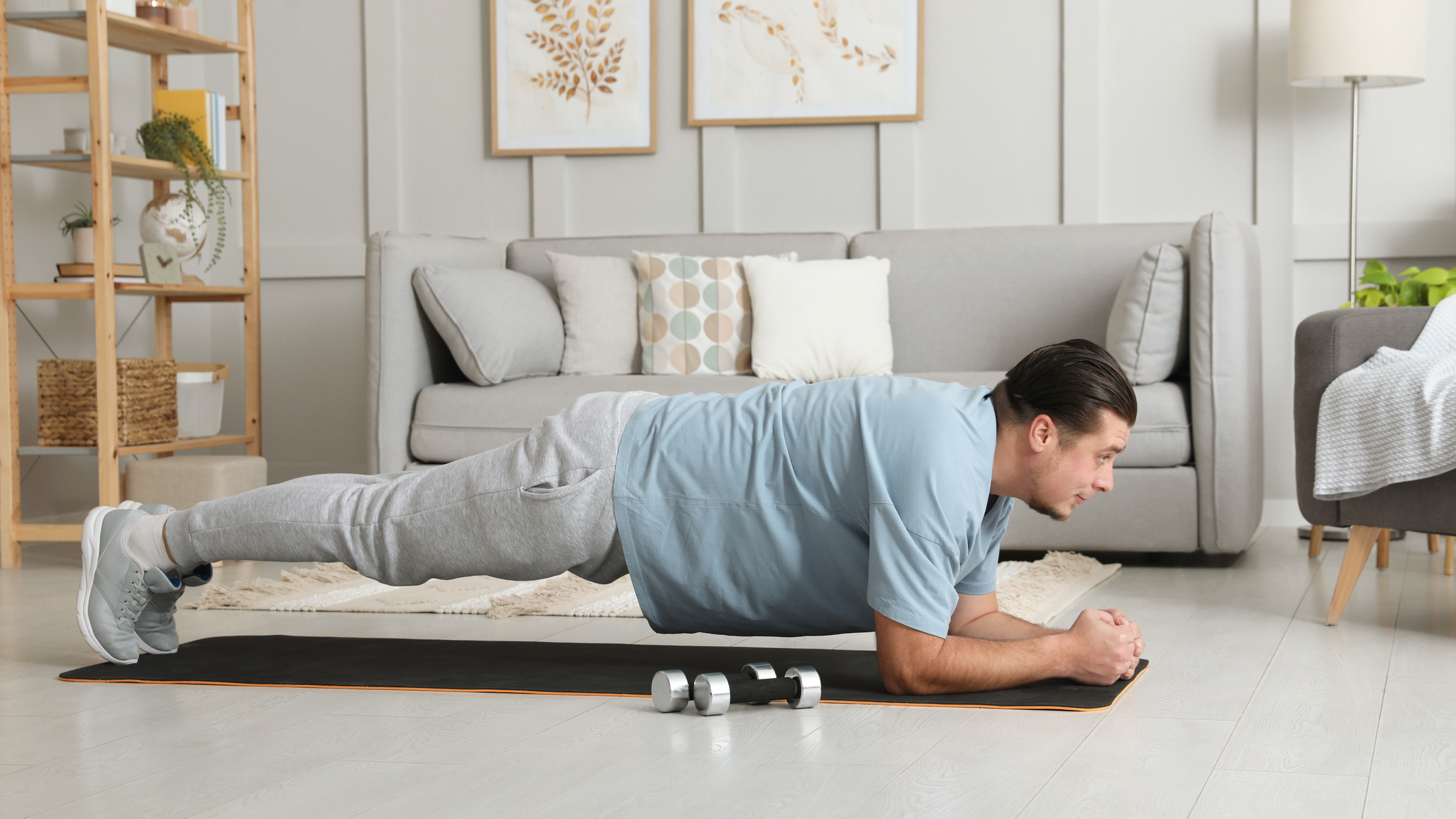
Equipment-free workouts are accessible, affordable and, best of all, can be done from anywhere, making it easier to build and stick to a routine.
With this in mind, Fit&Well spoke to personal trainer Roxanne Russell to find out her favorite equipment-free exercises. Combine these into a routine for a full-body 30-minute workout.
Six equipment-free exercises to strengthen your body
Russell says you should aim to perform each exercise for 60 seconds, before taking a 30-second rest. However, depending on your fitness and goals, you can decrease the resting time.
Repeat the exercises for three rounds for a 30-minute full-body workout, resting for 1-2 minutes between each round.
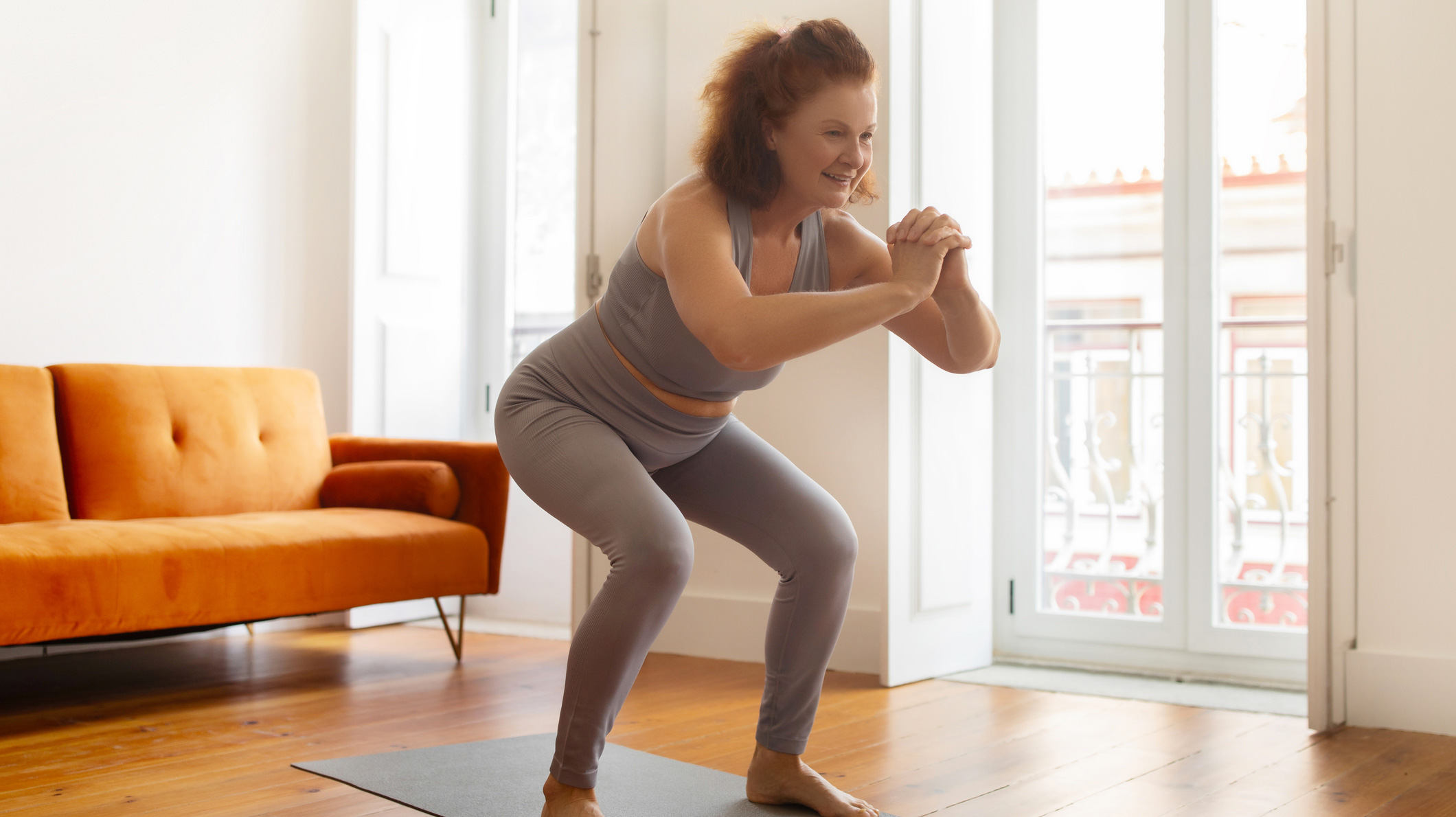
1. Squat
- Stand with your feet shoulder-width apart, toes slightly turned out.
- Lower your body by bending your knees, keeping them tracking in the same direction of your little toes
- Keep your chest upright and proud and your spine straight.
- With your weight evenly distributed across your feet, push through your heels to return to standing.
“Squats strengthen quadriceps, hamstrings, glutes, and calves. Squatting also improves mobility and stability in the lower body. As a compound movement, squats mimic daily activities like sitting and standing, making them essential for building functional strength,” says Russell.
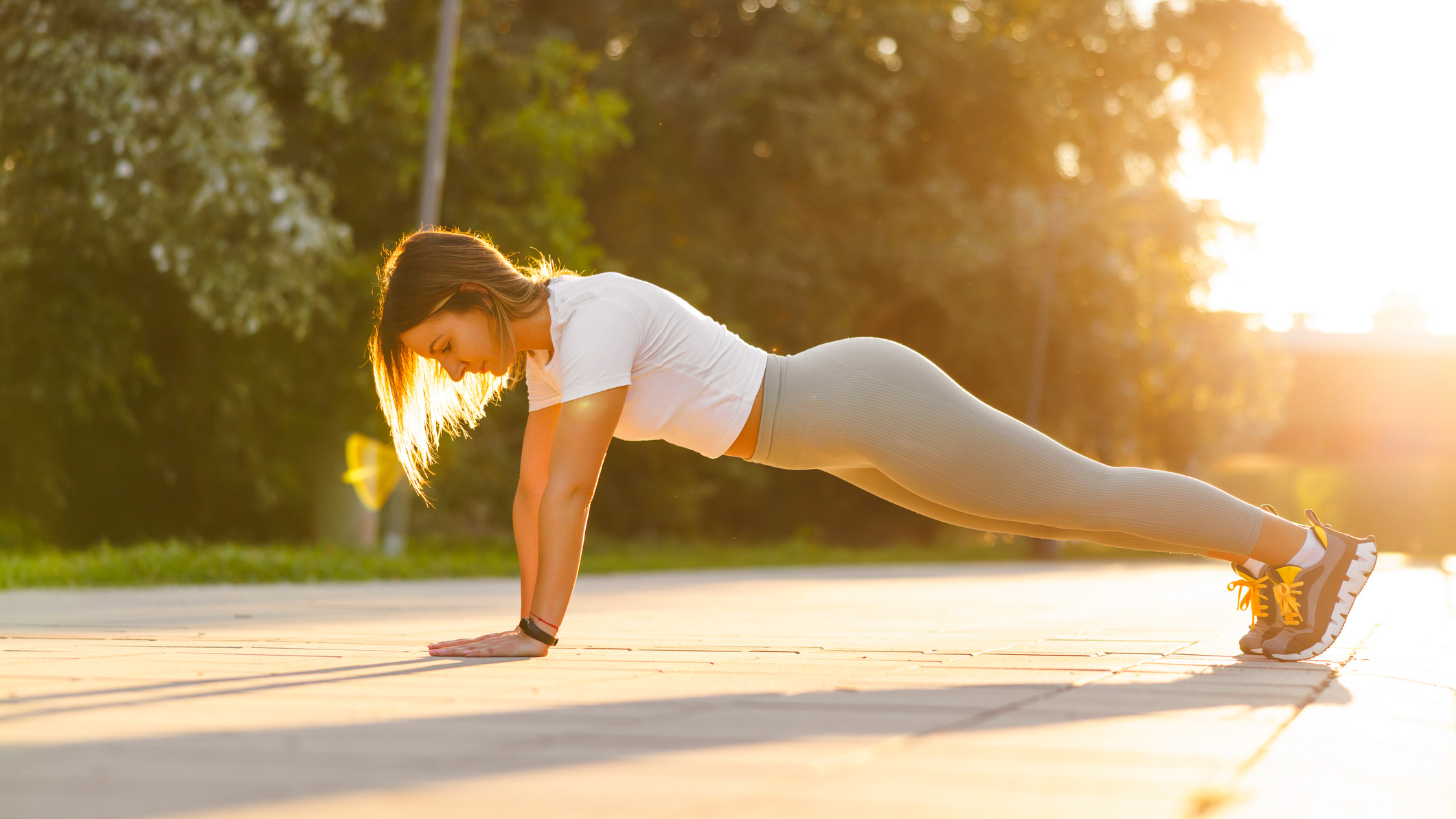
2. Push-up
- Start in a high plank position with your hands slightly wider than shoulder-width apart.
- Lower your body until your chest nearly touches the ground, keeping your core engaged and spine straight. Your body should be in a straight line from your head to your ankles. Keep your elbows close to your body at a 45° angle at the bottom position.
- Push through your hands to return to the starting position. If needed, you can modify it by doing push-ups on your knees.
Benefits of push-ups
According to Russell, push-ups are great for targeting the chest, shoulders, triceps, and core, as well as improving upper-body strength and stability.
“Maintaining a plank position throughout the movement engages the core muscles, helping to improve stability and prevent lower-back pain,” she says.
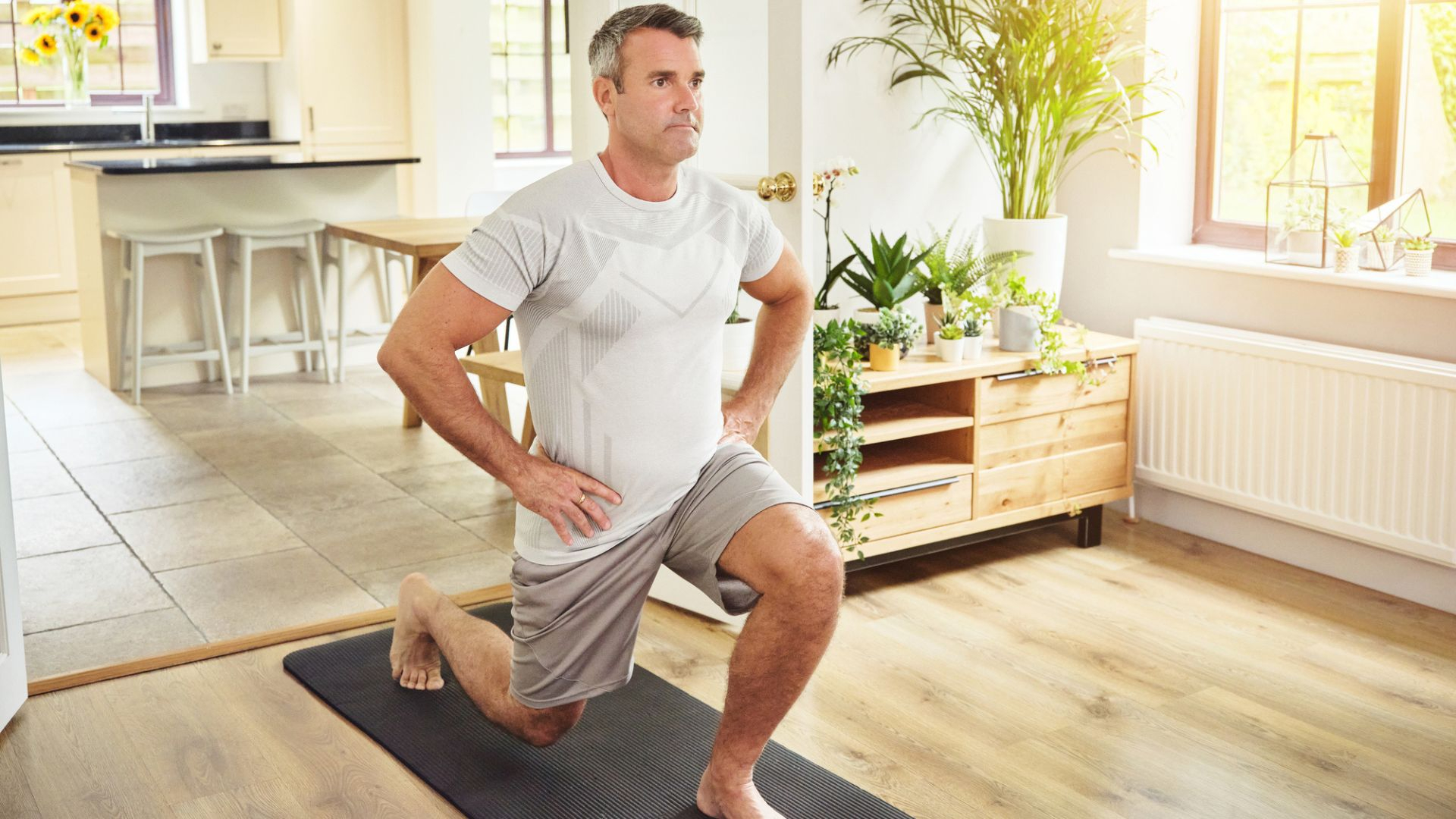
3. Lunge
- Stand with your feet hip-width apart.
- Take a big step forward with your right leg and lower your body so that your knees are bent at a 90° angle. Your back knee should hover just above the ground with knees tracking in line with your ankles.
- Push through your right heel to return to the starting position.
Benefits of lunges
Lunges are a great unilateral exercise as they target each leg independently. Russell says this is great for helping to identify and correct muscle imbalances and improve overall lower-body strength. Lunges also require coordination and balance, making them effective for improving joint stability.
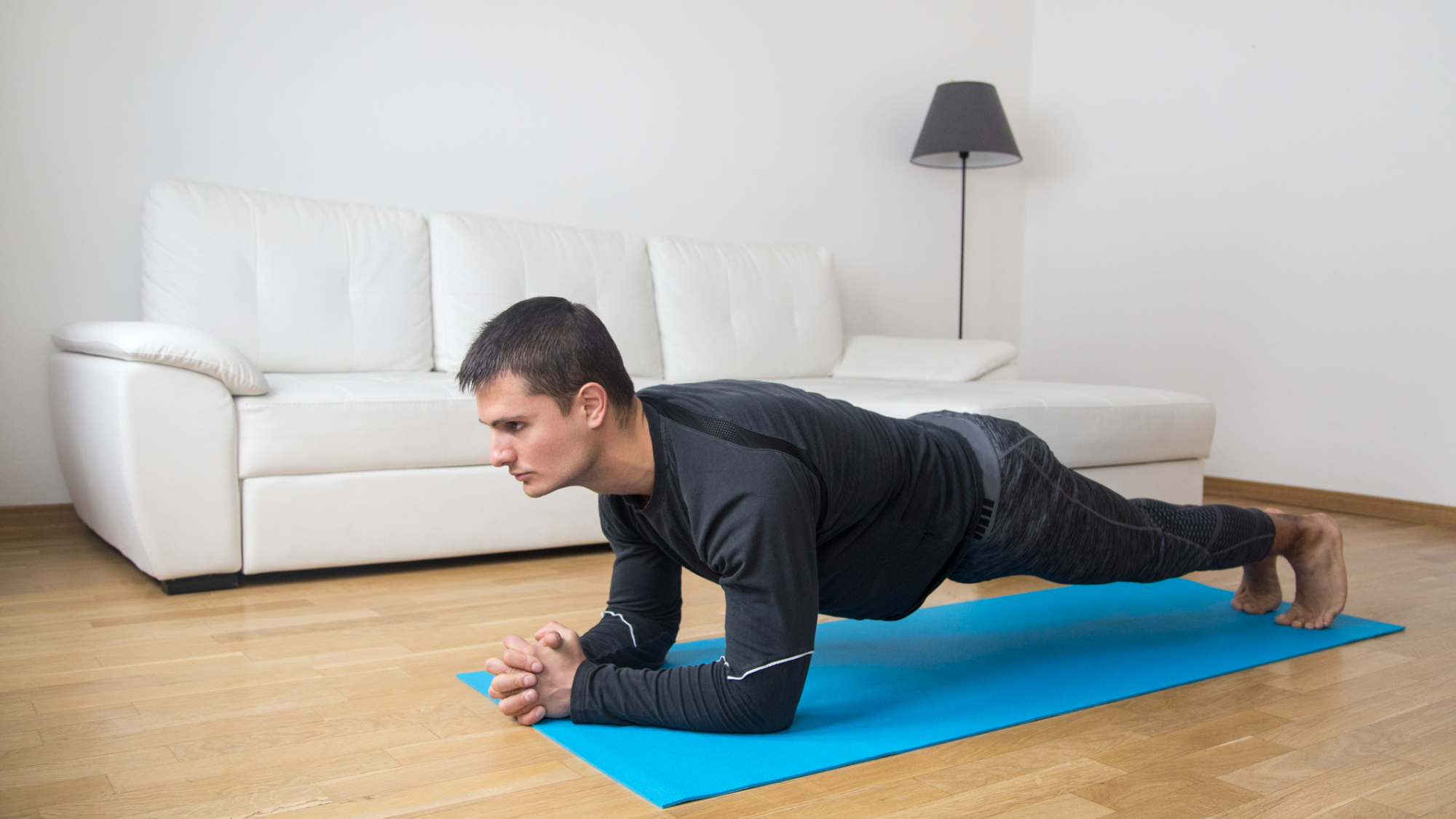
4. Plank
- Start in a forearm plank position with your elbows directly beneath your shoulders and your body in a straight line from head to toe.
- Engage your core and hold this position, avoiding sagging, flaring the ribs or arching your back.
- Keep your neck neutral and gaze towards the floor.
Benefits of plank
The plank is a great core strengthening workout where you’ll target the abdominals, obliques, and lower back. “Holding a plank position helps reinforce proper alignment of the spine and pelvis, which can improve posture over time,” Russell says.
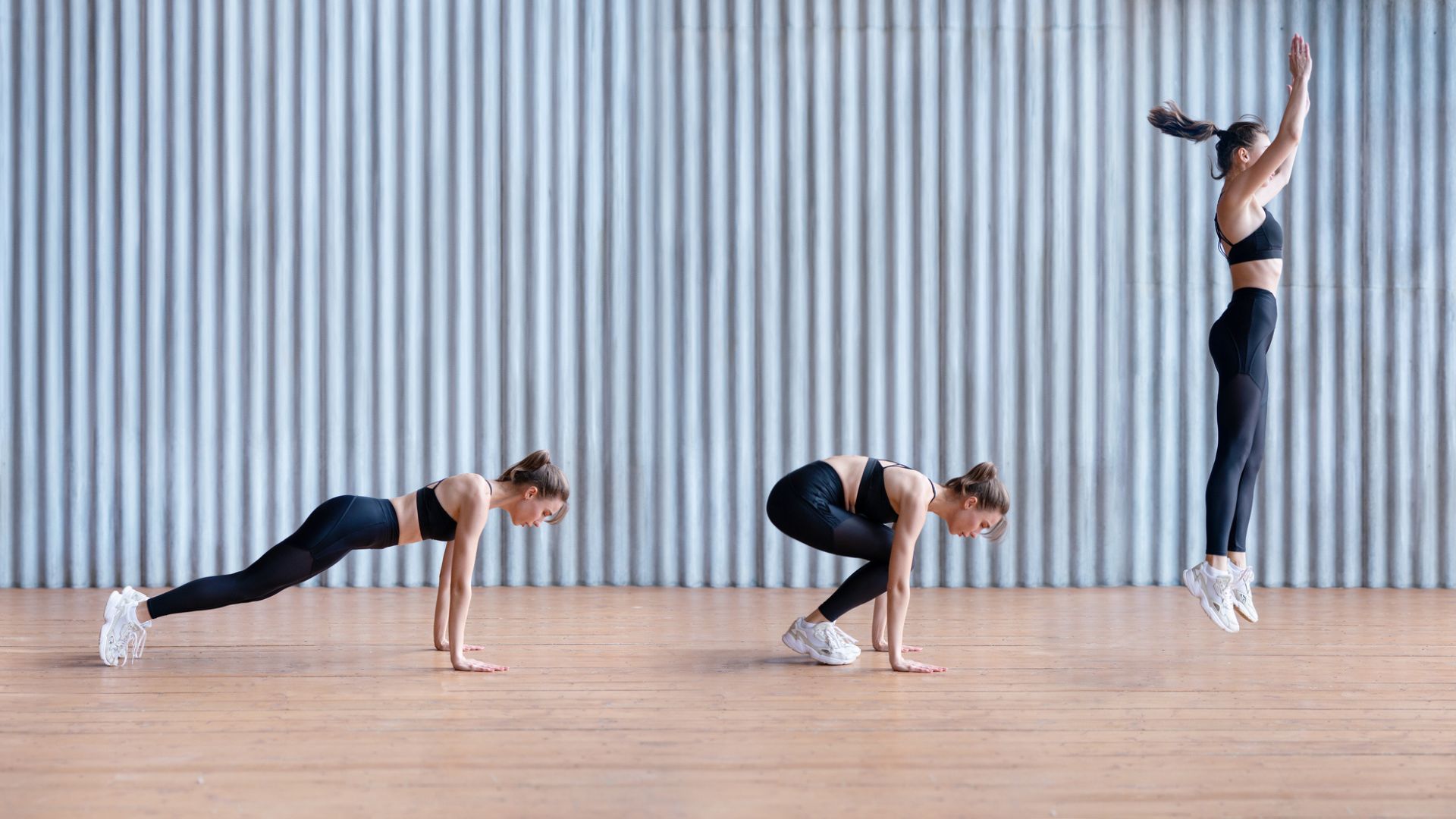
5. Burpee
- Start standing with your feet hip-width apart.
- Squat down and place your hands on the ground.
- Jump your feet back into a plank position.
- If you can, perform a push-up, then jump your feet back towards your hands. If you can’t perform a push-up, move straight from the plank position into the jump.
- Explosively jump into the air, reaching your arms overhead and landing softly.
“Burpees are a full-body exercise that target multiple muscle groups, including the chest, shoulders, arms, core, and legs,” says Russell. “It also provides a cardiovascular challenge and helps improve explosiveness and endurance.”
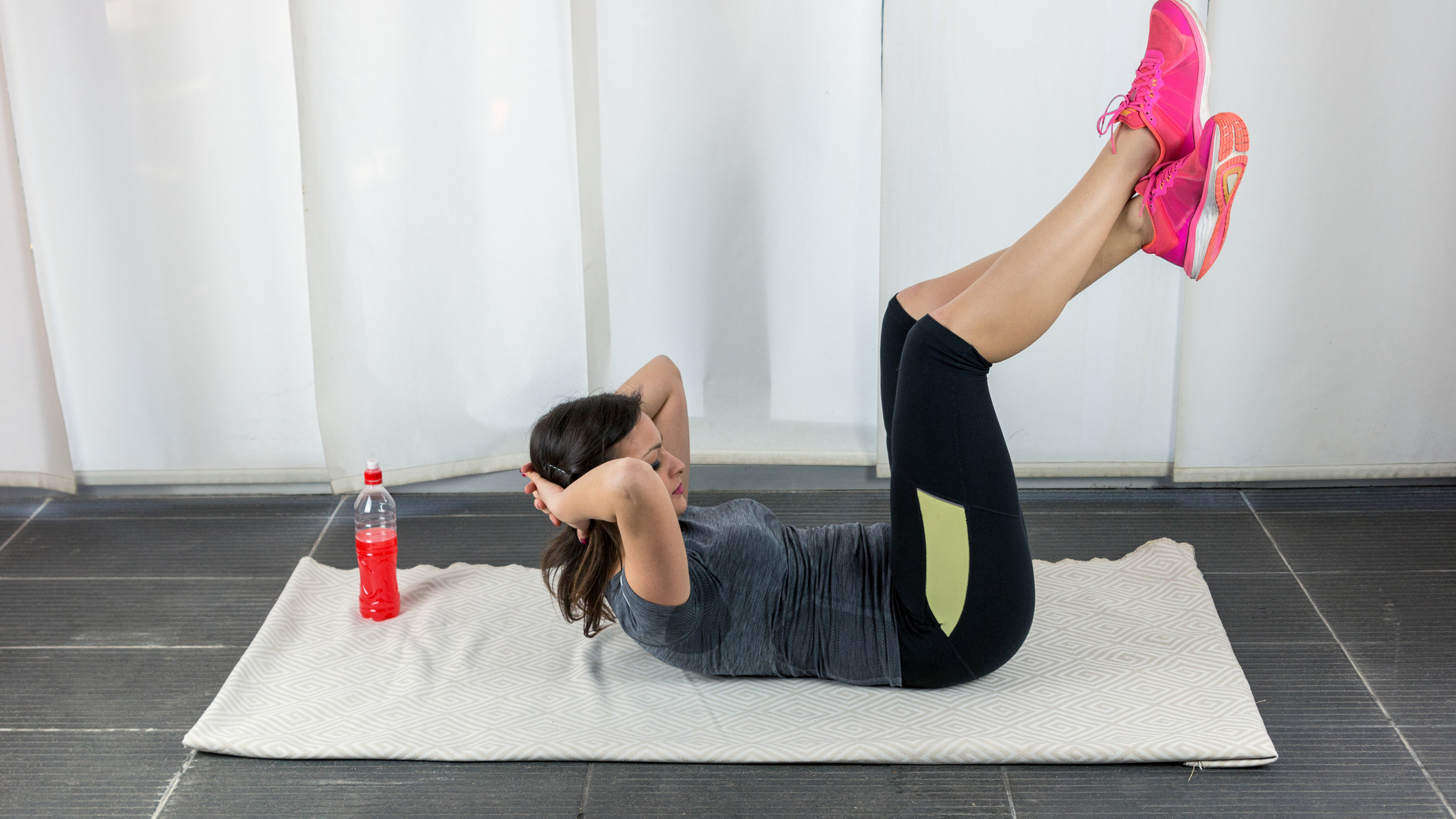
6. Reverse crunch
- Lie on your back. Bend your knees and lift your legs so your thighs are perpendicular to the floor and your shins are parallel to the floor.
- Engage your core and lift your hips off the ground while bringing your knees towards your chest.
- Pause briefly at the top, then lower your hips back down slowly and with control. Avoid swinging your legs or using momentum.
Benefits of reverse crunches
“Reverse crunches target the lower abdominal muscles, including the rectus abdominis and transversus abdominis. It is another great movement to help improve your core stability and control,” Russell says.







